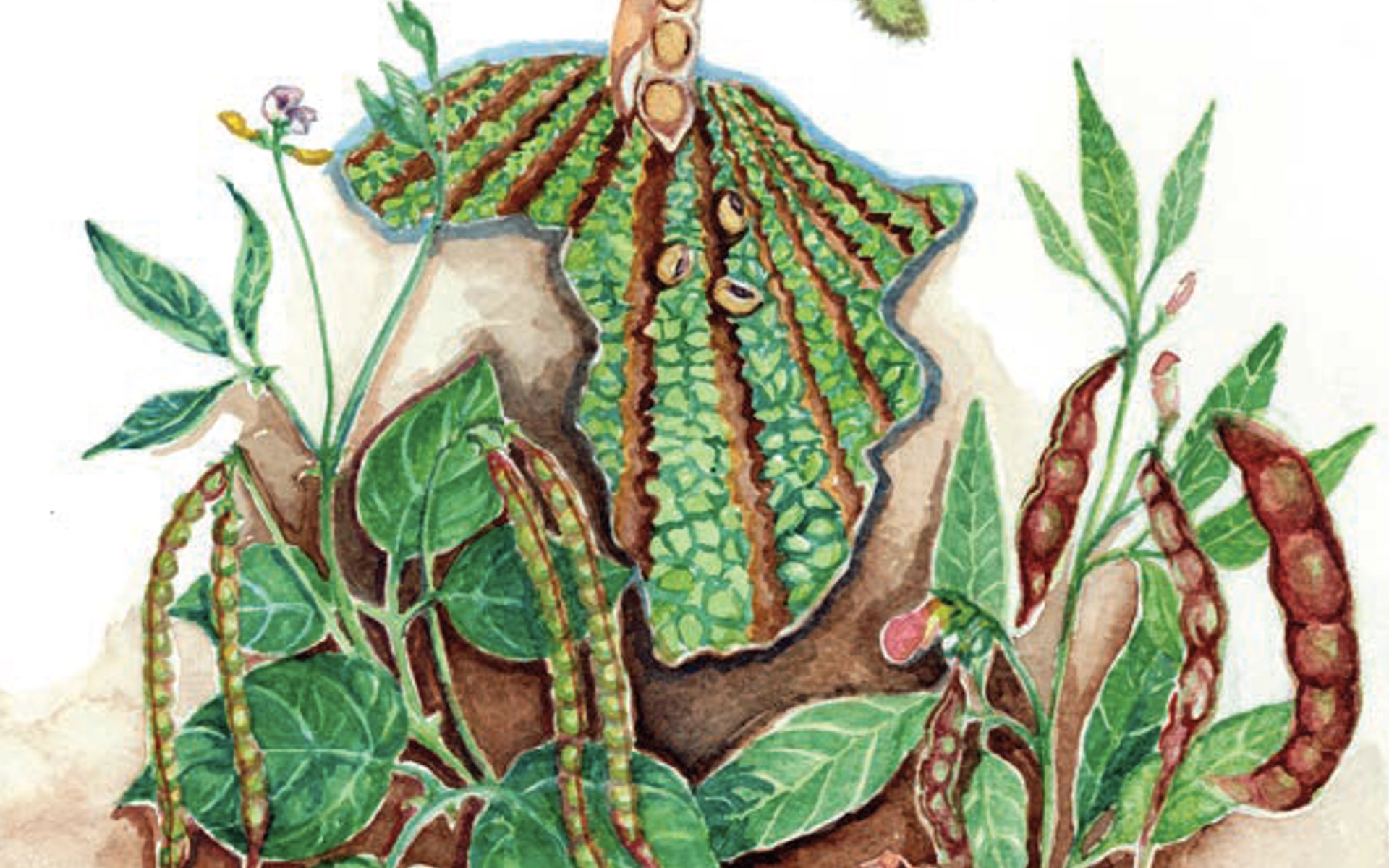Latest Resources

2 February 2017
Against the odds, smallholder farmers maintain agricultural biodiversity in South Africa
This report is a result of research conducted in partnership with Tshintsha Amakhaya, Farmer Support Group, TCOE Zingisa and Surplus People Project. The report investigates the state of farmer-managed seed systems in rural South Africa. Through three case studies in Eastern Cape, Northern Cape and KwaZulu-Natal, the report highlights both the fragility and perseverance of […]

13 January 2017
Hands OFF Our Food Systems! Small Farmers NOT Corporates Feed Africa
This lobby paper Who will feed Africans: Small-scale farmers not corporations! produced by the partnership between FoEA and ACB, makes the compelling case for African agriculture to transition towards agroecology and food sovereignty, recognising and strengthening the role of small scale farmers, rather than benefiting few large scale corporations with detrimental ecological, socio-economic, and nutritional […]

15 October 2016
World Food Day – South Africa faces drought, rising food prices and false promises of GMOs
To cope with drought and rising food prices, we need to urgently move away from genetically modified food and towards indigenous African crops. So warns the African Centre for Biodiversity (ACB). “We need to urgently shift away from maize towards embracing a diversity of crops – particularly indigenous African summer grain crops such as sorghum […]

14 October 2016
Transitioning out of GM maize: Current drought is an opportunity for a more resilient and just fo...
Coinciding with World Food Day, the African Centre for Biodiversity (ACB), in a new report titled “Transitioning out of GM maize: towards nutrition security, climate adaptation, agro-ecology and social justice” makes a compelling case for South Africa to urgently transition out of GM maize production, to systems that are socially just, ecologically sustainable and provide […]

5 October 2016
Farmer-managed seed systems in Dowa, Malawi: A legacy of eroded confidence and agricultural diver...
This report is the product of field work conducted by ACB and Kusamala Institute for Agriculture and Ecology in Dowa district in central Malawi. The objective of the research was to deepen our understanding of the role of farmer seed varieties in smallholder production systems that have come under heavy pressure from concerted Green Revolution […]

16 September 2016
Mapping farmer seed varieties in Manica, Mozambique: initial investigations into agricultural bio...
This scoping exercise to deepen our understanding of the current context of seed use, main crops and varieties in the research localities in order to gather evidence of the ongoing importance of farmer seed systems in the agricultural practices and livelihoods of smallholder farmers, to identify cases of biodiversity loss and to use this information […]

29 August 2016
N2 Africa, the Gates Foundation and Legume commercialisation in Africa
This report considers the N2Africa programme, which aims to develop and distribute improved, certified legume varieties (soya, common bean, groundnut and cow pea); promote and distribute inoculants and synthetic fertiliser; and develop commercial legume markets for smallholder integration in 13 countries in sub-Saharan Africa: Tanzania, Uganda, Ethiopia, Nigeria, Ghana (core countries); Kenya, Rwanda, Democratic Republic […]

1 August 2016
Farmer Managed Seed Systems in Morogoro and Mvomero, Tanzania: The disregarded wealth of smallhol...
In this report by the African Centre for Biodiversity (ACB), in partnership with Mtandao wa Vikundi vya Wakulima Tanzania (MVIWATA) and Sustainable Agriculture Tanzania (SAT), based on field work conducted in Morogoro and Mvomero in 2016. It is a continuation of a research partnership with MVIWATA and SAT started in 2014, which has focused on […]

13 July 2016
Soil fertility: Agroecology and not the Green Revolution for Africa
This synthesis report summarises ACB’s research on the Green Revolution push in Africa, based on fieldwork conducted in Malawi, Mozambique, Tanzania, Zambia and Zimbabwe over the past three years. The research indicates that the promotion of synthetic fertiliser use in Africa is only a short-term fix for enhancing soil fertility on the continent. In the […]

11 July 2016
Farm Input Subsidy Programmes (FISPs): A Benefit for, or the Betrayal of, SADC’s Small-Scale Farm...
This paper reviews the farm input subsidy programmes (FISPs) within countries belonging to the Southern Africa Development Community (SADC), to ascertain whether input subsidies have benefited small-scale farmers, have increased food security at the household and national levels, and have improved the incomes of small-scale farmers. Download the report.
